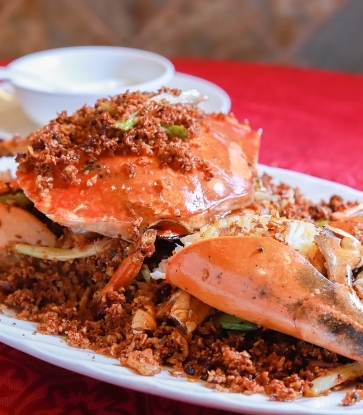Alex Chasko is an American in Dublin: the Portland, Oregon-native first got his start at the local Bridgeport Brewery. “There are such unique and interesting aromas in beer,” he says. “Spirits have the same thing—it just takes longer.”
Chasko then flew to Edinburgh to get his MSc. in Brewing and Distilling at Heriot-Watt University before moving to Ireland, where he became the innovations manager at Cooley Distillery in County Lauth.
In March of 2015, Chasko joined brothers Jack and Stephen Teeling's eponymous distillery for their opening debut as the master distiller and blender; it was the first new distillery in Dublin in over 125 years. (And it’s located near Walter Teeling’s small craft distillery on nearby Marrowbone Lane, dating back to 1782.)
Coining themselves the “new generation of Irish whiskey distillers”—and well aware of the spirit’s past downfall—Teeling aims to bring both innovation and independent voices in the industry back to the heart of the country.
“Dublin whiskey would have traditionally be made in a copper pot still. It would have been triple-distilled, it would have been made of a mixture of malted and unmalted barley, and using locally-sourced water and Irish grain,” says Chasko. “And that’s really what we’re trying to do with our distillery, with triple-distilled copper pots and the traditional mashing and fermentation methods, and to find the use of traditional grains that would be used today like oats and rye and other varieties of barley. We’re kids in a candy factory—we make any sweets that we want.”
A special whiskey at Teeling is made in aquavit casks and is sold in Sweden.
Chasko has now been a resident of Ireland for just over a decade; he currently resides in Dublin with his wife and daughter.

Get to know the master distiller behind Teeling Whiskey:
What is the best whiskey on the market other than Teeling?
Balcones Baby Blue Blue Corn Bourbon from Waco, Texas. What I like about this and other small craft whiskey distilleries in the USA is that they are trying new things and looking for their own style or type of whiskey. They are challenging the views of what a standard flavor profile should be—similar to the way craft beer challenged the view of what an ale or lager is.
What is your end all, be-all cocktail?
…Whiskey neat? Probably a White Russian or a Manhattan.
What is your general consumer pet peeve?
The general pet peeve in the industry is to add water to whiskey. But the spirit has some 3,000 flavor components. Even adding ice, I don’t get upset about.
…Maybe someone adding 7-Up to whiskey. I could get upset over that.
What trends are you seeing in the whiskey industry?
There has been a trend in aging spirits while moving away from age statements. This allows the brands more flexibility for growth and could fix any supply issues that might occur due to lack of aged stock. The trend has been to drop a 10- or 12-year-old age statement and focus on unique flavors or process points of difference. So the 12-year-old becomes the “triple cask” or “European oak.” I’m also seeing a ton of new flavored whiskeys pop up.
If you weren’t a distiller, what would you be?
Ha, supermodel, of course! In all seriousness, probably a chef.















